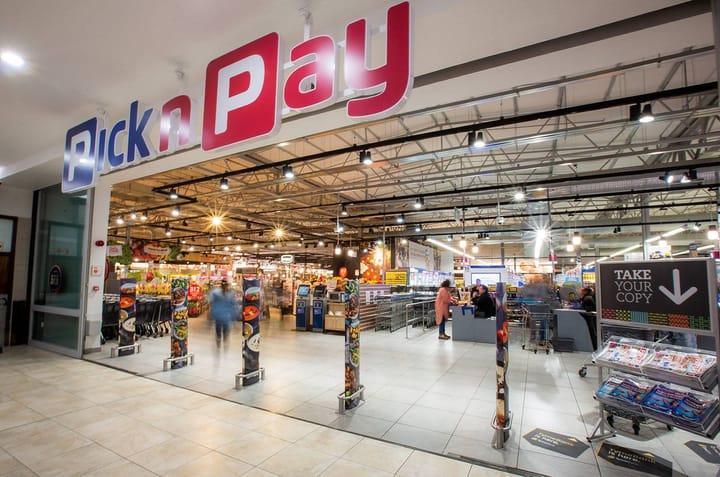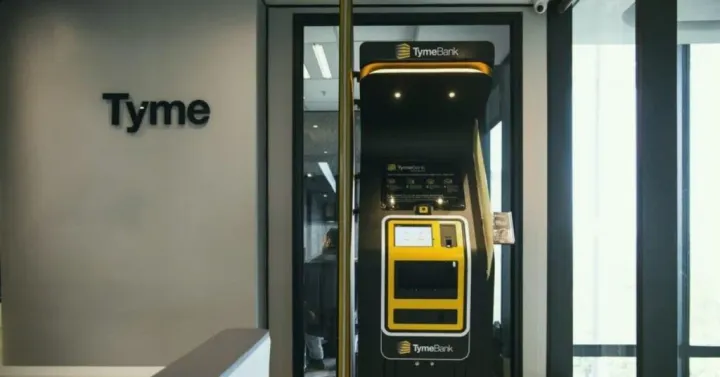BD Insider: Can Jumia reinvent itself with $100 million?
Jumia is still in the race to attain profitability and faces unusual competition from social commerce. But the e-commerce giant is not laying low

🍔Quick Bite: Jumia is still in the race to attain profitability and faces unusual competition from social commerce. But the e-commerce giant is not laying low, it is doubling down on other areas to ensure sustainability and increase its chances of profitability.
The Breakdown
Eight years after becoming Africa’s first unicorn, Jumia is still chasing profitability. The company has navigated a range of challenges, from currency depreciation to infrastructure issues, yet it has managed to stay afloat. However, as internet penetration and smartphone usage surge across the continent, Jumia now faces a new, though not entirely surprising, competitor: social commerce.
Just a few years ago, it was rare to hear someone say they bought clothes on Instagram or shoes from a Facebook vendor. Today, it's commonplace. This shift highlights a growing trend of people turning to these platforms for purchases they might have once made on Jumia.
Social media platforms are capitalising on this trend, too. Instagram and TikTok now allow sellers to set up virtual stores on their pages, complete with product images, descriptions, and prices. Jumia doesn’t have that level of flexibility.
Given how much time we spend on social media, discovering items we love or desire is inevitable. Plus, there’s the added advantage of a personalised shopping experience. You can talk to the seller, list out your preferences, and sometimes even have a live picture of what you want sent to you before paying.
These factors have fueled the growth of social commerce. A 2023 GSMA report highlights social media as the primary e-commerce channel for many African MSMEs in Nigeria, Kenya, Ethiopia, Ghana, South Africa, and Egypt. Additionally, Sagaci Research found that over half of African social media users have engaged in buying or selling products through these platforms.
How Jumia is responding to Social Commerce
Jumia's decade-long survival in the competitive e-commerce market is a testament to its resilience. Under the leadership of Francis Dufay since 2022, the company has embarked on a cost-cutting strategy to achieve profitability. This includes shutting down Jumia Foods, its food delivery business, and significant workforce reductions. Jumia also slashed advertising expenditures by 30% in Q1 2024 compared to the previous year.
These cost-cutting measures appear to be paying off. Jumia narrowed its quarterly losses by 50% in Q2 2024 compared to the same period in 2023, reducing its loss to $19 million.
Jumia’s diversified products
Beyond its core marketplace operations, Jumia has consistently explored opportunities in fintech and logistics, outlining ambitious plans for these sectors over the years. Last month, it appointed former PalmPay executive Anthony Mbagwu as the Managing Director of its Nigerian fintech division, JumiaPay. Integrated into Jumia's checkout process, JumiaPay handled roughly 39.5% of the platform’s orders in 2023. JumiaPay also offers a standalone app to manage bank transfers, bill payments, loans, and merchant transactions. The service saw significant growth, with transactions reaching $1.9 million in Q2 2024, a 30% year-over-year increase.
In 2022, Jumia launched an integrated warehouse and logistics facility in Kenya. The 11,000-metre-squared warehouse serves as a convergence point for various Jumia services and reduces operational logistics costs by eliminating the need to transport items from warehouses to sorting centres before they are processed for users.
The eCommerce platform has also consolidated its three warehouses in Nigeria into a new 30,000-square-meter integrated warehouse and logistics facility to better meet the demands of the Nigerian market. Additionally, it has launched a 5,000-square-meter integrated warehouse in Morocco.
Through a partnership with Easybuy, Jumia recently introduced a buy now, pay later model for its consumers across Nigeria, allowing them to make flexible payments for products over a set time.
After a decade of being referred to as the “Amazon of Africa,” Jumia now faces direct competition from Amazon itself. The global e-commerce giant has officially entered the African market, with operations underway in Egypt and South Africa.
What’s Jumia’s fate in the African e-commerce market?
Despite its glaring challenges, you won’t want to take a bet against Jumia. This month, the company raised $99.6 million in secondary share sales, hitting its funding target within just ten days of announcing plans to sell 20 million shares. During this sale, Pernod Ricard, the world’s second-largest wine seller, increased its stake in Jumia from 6.4% to 7.5%.
Jumia’s road to profitability is far from straightforward, but under the leadership of CEO Dufay, Jumia would have to find a way to co-exist with social commerce as it continues to work on its plan to achieve the decade-long dream of becoming a profitable business.
📈 Trending Stories
Here are other important stories in the media:
- Africa's biggest crypto scam kingpin confirmed dead
- As data costs bite, Botswana’s free WiFi program is blowing up in popularity
- #EndBadGovernance protest: Nigerian government blocks $38m funds in 4 crypto wallets
- High Court denies motion to reverse billions of naira Flutterwave lost in PoS fraud
💼 Opportunities
Jobs
We carefully curate open opportunities in Product & Design, Data & Engineering, and Admin & Growth every week.
Product & Design
- Casava — Product Manager, Lagos
- Lifemate — Graphic Designer, Lagos
Data & Engineering
- Project Growth — Full Stack Engineer, Remote
- Bamboo — Mobile Engineer, Lagos
Admin & Growth
- UnitedMasters — Nigeria Marketing Manager, Lagos
- Clipboard Health — Customer Support Team Leader, Remote






